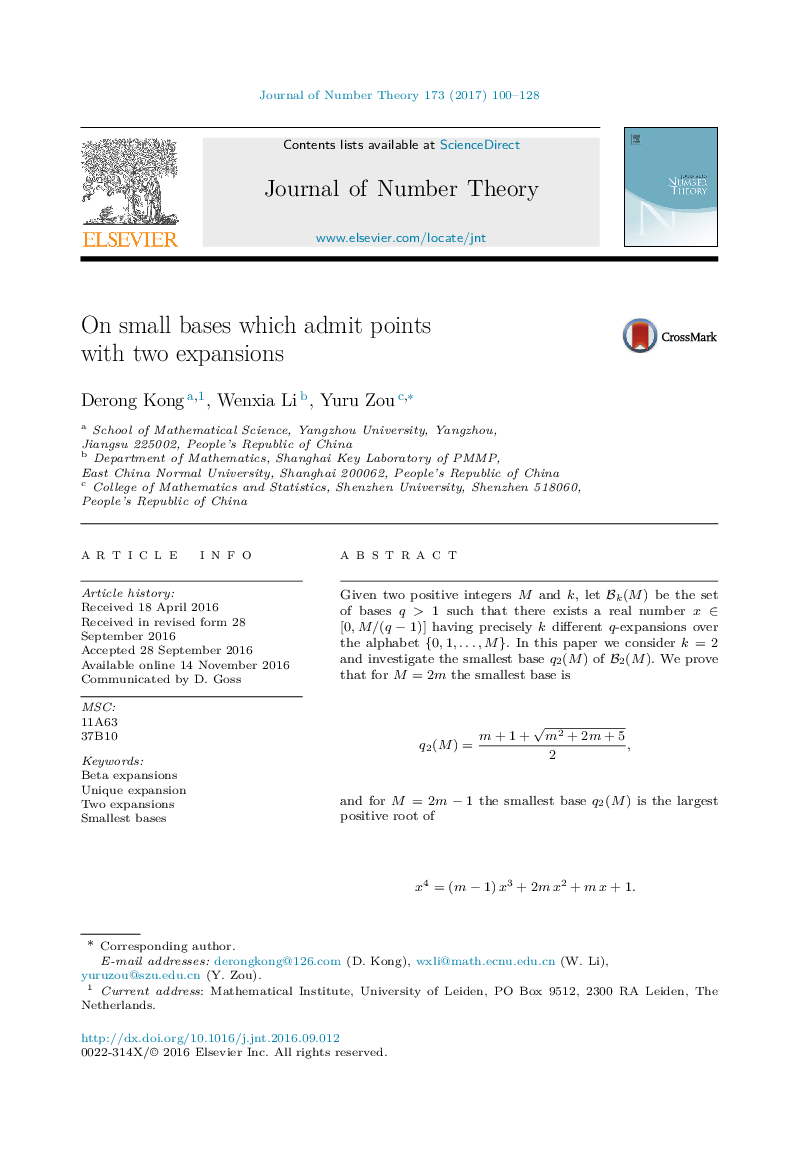| Article ID | Journal | Published Year | Pages | File Type |
|---|---|---|---|---|
| 8897168 | Journal of Number Theory | 2017 | 29 Pages |
Abstract
Given two positive integers M and k, let Bk(M) be the set of bases q>1 such that there exists a real number xâ[0,M/(qâ1)] having precisely k different q-expansions over the alphabet {0,1,â¦,M}. In this paper we consider k=2 and investigate the smallest base q2(M) of B2(M). We prove that for M=2m the smallest base isq2(M)=m+1+m2+2m+52, and for M=2mâ1 the smallest base q2(M) is the largest positive root ofx4=(mâ1)x3+2mx2+mx+1. Moreover, for M=2 we show that q2(2) is also the smallest base of Bk(2) for all kâ¥3.
Keywords
Related Topics
Physical Sciences and Engineering
Mathematics
Algebra and Number Theory
Authors
Derong Kong, Wenxia Li, Yuru Zou,
